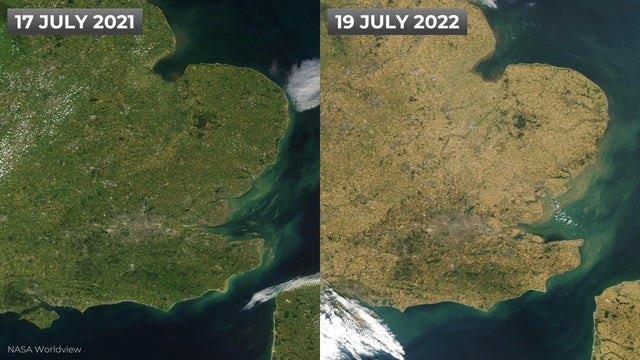It’s hard not to notice that our green and pleasant pastures aren’t so green at the moment, but what does this mean for our British Cheesemakers now and in future?
Let’s start with the winter feed. At this point in the year, the cattle are out to pasture, and the feed is being harvested. In the autumn, when the cows come back in, they feed on the yield, maintaining the continual dairy farm lifecycle. It supports keeping costs low, reducing the need to import foreign feed. It's important to note, that when using the term ‘foreign’ in this instance, I mean feed external to the farm, be this within the UK or from overseas.
These two benefits are accompanied by a third. Quality control. A farm’s own feed is easier to appraise. Because you know exactly what you’re feeding your cattle, you’ll have a better understanding of what effect that will have on your milk and, ultimately, your cheese.
With the grass running dry and not growing as plentiful, Cheesemakers are already dipping into their winter feed stockpiles. This early depletion of winter stocks means they face the prospect of running out, resulting in the need to buy expensive feed. This purchase will be accompanied by a difficulty in predicting how the milk and cheese will be affected. The prospect of people not liking these changes in the cheese, could then result in Cheesemakers feeling forced to sell their wares cheaper or not at all! These changes have a further effect on other areas of the business, including overheads.
Overall, milk yield is the final domino to fall, as scarcity of feed ultimately means there's less milk produced and, therefore, less cheese to sell. Another weather-induced problem which dairy farmers have to face.
You may be thinking, “But Perry, this weather is commonplace in Spain and Italy etc.” and you would be right. It is! These countries also have the advantage of having had centuries of making cheese in these weather conditions. Not only are they skilled in making cheese in these climates, their cultural cuisine and palate preferences are geared toward cheeses, milks and processes which suit these conditions. Let's take a very quick look at sheep's milk cheese, as some of the most culturally iconic cheeses of the Mediterranean, such as Feta, Manchego and Pecorino are made from milk from the humble sheep. Although we make many delicious types of sheep's milk cheese in the UK, (you can see these here) and although we were primarily sheep farmers before the explosion in popularity of cows milk, on a purely anecdotal basis, I would say that 65% of people who I speak to would turn their noses up at the thought of consuming a sheep's milk cheese here in the UK.
Our usual British baseline weather conditions mean we are more suited to mild peaks in heat, general and consistent drizzle, or anything ranging from a warm day to a slight frost. We have all heard the stories of melting runways, blistering house temperatures and general folklore about the country grinding to a halt in the extreme heat, and the same counts for anything above a couple of inches of snowfall. I won’t go into politics, but I’ll just say that as a country, we aren't equipped and are ill-prepared for the extremes on either end of the scale, and I will leave it as that.
These unruly and uncharacteristically hot conditions provide another set of issues for our British Artisan cheese makers and, much like the last set of cards which Covid-19 dealt, our Cheesemakers will no doubt learn, adapt and thrive.
I’ll leave you with this video of a dairy called Quickes, celebrating the recent rainfall they had. I imagine many farmers will be enacting their own ‘rain dance’ to help alleviate the problem of the newest storm they’ve had the weather.
Finally. thank you for reading! Here is a discount code that is active until Sunday for 10% August's Mystery Cheese Box!
CODE: BLOG10


Thanks Perry, it’s really good to have this context. We’ll keep buying great British cheeses. We have some of the best in the world.
Great read, and so true. We just need the consumer to understand the changes in the cheese are what makes Artisan cheese so interesting and amazing.